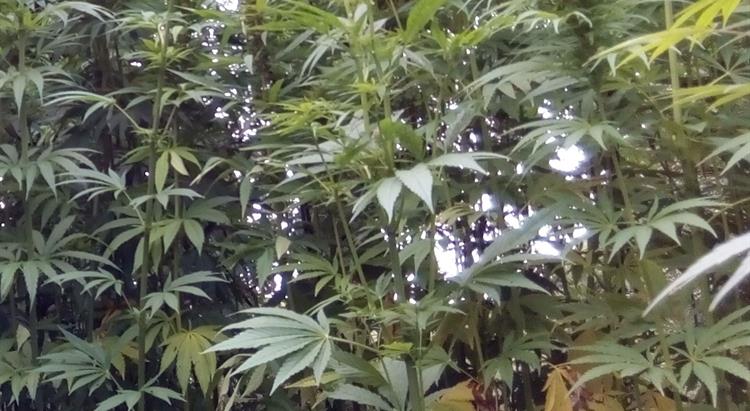17 August 2017

A trial of locally grown hemp is progressing well following favourable growing conditions this summer.
The trial is being overseen by the Plant Health Laboratory in the Department of the Environment. Hemp is one of a number of crops being considered as part of an alternative crop strategy for Jersey to diversify and broaden the rural economy.
Culinary uses
Hemp, once commonplace in Jersey, is being grown for its fibre, from the stalks, and its oil, from the seeds. The fibre can be used in many different ways - from construction to animal bedding. The oil is a popular and highly-regarded culinary ingredient, and is used in personal care and beauty products.
Next month, specialist equipment will be used to harvest the seeds produced in the top third of the plant and the fibre from the bottom two thirds.
Head of Plant Health at the Department of the Environment, Scott Meadows said that results so far looked promising. “Now the focus is on getting the harvesting right. It will be important to get some accurate and meaningful results from both the seed and the stalks. The information we get will help inform the business plan, and give us a steer on whether there is a commercial future for this crop here in Jersey.”
Environmental benefits
The trial also has a number of direct environmental benefits. The growers haven’t used pesticides or fertilisers, and the crop produces large amounts of pollen and nectar so is beneficial for invertebrates (animals without backbones). The part of the plant that isn’t harvested will improve soil organic matter.
If the hemp harvest and oil pressing are successful this season, it’s likely that the area grown will be increased for 2018.
This season tea and haskap (also known as honeyberry or blue honeysuckle) have also been planted in Jersey. Other crops will be explored over the five-year lifespan of the current Rural Economy Strategy.
There is no link between the hemp varieties being grown in Jersey and recreational or medicinal cannabis. The cultivation of any form of this plant remains illegal without a licence.
Rural economy
The alternative crops strategy is part of the approved Rural Economy Strategy 2017 to 2021 (RES), which is the responsibility of the Department for Economic Development, Tourism, Sport and Culture, working with the Department of the Environment.
The RES aims to balance the needs of the rural sector, government and the people of Jersey to grow the rural economy while safeguarding Jersey's countryside, its character and the environment and in doing so, provide a sustainable and prosperous future for the industry.
The strategy focuses on economic and environmental sustainability in the countryside. It proposes new policies to keep pace with changes in the rural economy and promote growth in the sector, to protect Jersey's environment, and to ensure the impact of rural business on the wider environment and society is considered